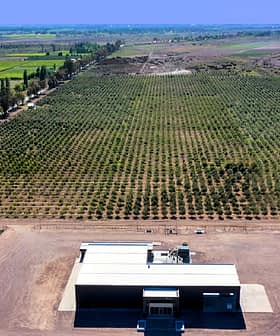The availability of food, animal feed and fertilizer will not be significantly affected in the European Union, despite the ongoing Russian invasion of Ukraine, according to the bloc’s latest short-term agricultural outlook.
As a result, olive oil prices should stay at current levels while marketing costs and demand are growing. According to the report, the E.U. is largely self-sufficient in feeding itself, with a massive agri-food trade surplus.
However, the report acknowledged the critical role played by Ukraine in grain and seed oil markets and warned how the war is further stressing global supply chains, which were already coping with considerable challenges before the outbreak of the war.
See Also:Olive Oil Exports to Exceed 1M Tons by 2030, E.U. ForecastsAmong the consequences of the geopolitical tensions, commodity prices are rising, including energy, fertilizers, wheat and soybeans. Experts expect those prices to grow further, potentially impacting the ability of farmers to purchase fertilizers, feed and pay their energy bills.
The report said the outlook is stable in the bloc’s olive oil sector. In the 2021/22 crop year, E.U. olive oil production is expected to reach 2.3 million tons, a 10 percent increase compared with the previous season.
Olive oil prices, which have steadily grown in the three benchmark markets in recent months, should stay at current levels. This will happen primarily because of increasing costs for packaging and transport.
Olive oil prices will also be affected by higher demand for the product as a substitute for other vegetable oils, the prices of which are skyrocketing due to the war in Ukraine.
Given this scenario, E.U. experts believe that olive oil consumption within the European Union could rise 7 percent compared with the previous crop year. Partially as a result, a slight 3 percent decrease is estimated for exports.
In its recent report on the market situation in the olive oil sector, the European Union’s Common Organization of the Agricultural Markets said global olive oil production should reach 3.378 million tons against the 3.010 million tons of the previous season.
Looking at the five-years production average, E.U. olive oil production grew by 11 percent in the 2021/22 crop year.
Spain is expected to contribute 66 percent of the yields with 1.49 million tons in the current season, followed by Italy with 15 percent (328,000 tons) and Greece with 10 percent (215,000 tons).
While most of the world’s production comes from E.U. member states, the committee also highlighted the global recovery in olive oil production in non‑E.U. countries, which is forecasted to reach 1.125 million tons, up from 959,000 tons in the previous crop year.
The report noted how those numbers should bring the current season’s results 1 percent above the five-year average for non‑E.U. producing countries.









